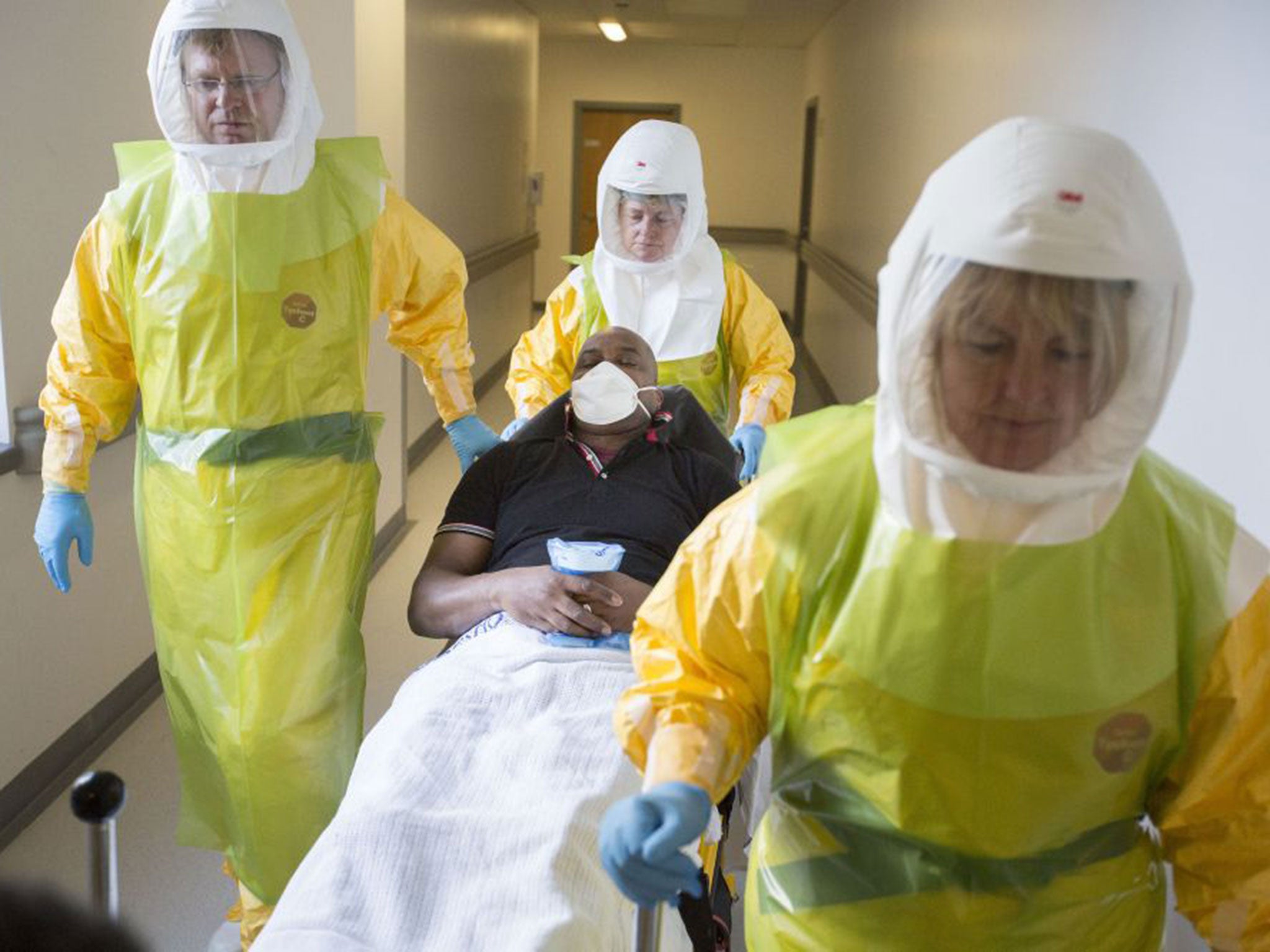Jeremy Hunt: UK Ebola victims won’t exceed ‘a handful’
Anyone considered to be at risk will be passed on to emergency services

Your support helps us to tell the story
From reproductive rights to climate change to Big Tech, The Independent is on the ground when the story is developing. Whether it's investigating the financials of Elon Musk's pro-Trump PAC or producing our latest documentary, 'The A Word', which shines a light on the American women fighting for reproductive rights, we know how important it is to parse out the facts from the messaging.
At such a critical moment in US history, we need reporters on the ground. Your donation allows us to keep sending journalists to speak to both sides of the story.
The Independent is trusted by Americans across the entire political spectrum. And unlike many other quality news outlets, we choose not to lock Americans out of our reporting and analysis with paywalls. We believe quality journalism should be available to everyone, paid for by those who can afford it.
Your support makes all the difference.The Health Secretary Jeremy Hunt defended Britain’s response to the Ebola crisis which was described by the head of the World Health Organisation (WHO) as the biggest danger posed by a disease in modern times.
Unveiling new measures designed to halt the spread of the deadly virus from arriving in the UK and to identify those in the early stages of infection, Mr Hunt told MPs that he did not expect the number of victims to exceed a “handful of cases” – fewer than 10.
He was challenged by Labour to describe the “worst-case scenario” and sought to reassure the public that the risk posed by the disease was low. However he said it was possible that the number of infections could rise and the situation was likely to get worse before it improves.
“The reason that we stuck carefully to this formula of a handful of cases is because it is very difficult to predict an exact number, and so let me say this: we wouldn’t have used the formula of a handful of cases if we thought the number of cases in the next three months was going to reach double figures,” he said.
The new public health measures will see callers to the NHS’s non-emergency 111 phone line questioned to see if they might be infected with the deadly virus. People seeking health information will be asked whether they have recently travelled from West Africa, where 4,000 people have already died in the latest outbreak, or if they are suffering from symptoms including respiratory problems, high temperatures, or diarrhoea and vomiting. Anyone considered to be at risk will be passed on to emergency services to be assessed by ambulance staff in full protective dress.
The latest move comes as it was confirmed that enhanced screening for Ebola is set to be introduced at the UK’s two busiest airports, Heathrow and Gatwick, from today. Eurostar is also to upgrade procedures to identify possible sufferers.
The WHO director-general Margaret Chan described the epidemic as the “most severe acute health emergency in modern times” and warned that the international community was ill-equipped to respond to the crisis. She said in a statement delivered on her behalf to a health conference in the Philippine capital Manila that the disease threatened a new wave of instability in the troubled region. The number of infections in the worst affected countries, Liberia, Sierra Leone and Guinea, is rising exponentially.
“I have never seen a health event threaten the very survival of societies and governments in already very poor countries. I have never seen an infectious disease contribute to potential state failure,” she said.
Dr Ron Behrens, from the London School of Hygiene and Tropical Medicine, said using the non-emergency phone-line could tie up a lot of resources whilst offering low levels of detection. “It appears not to be a scientific decision but a political one,” he said.
However, Professor Derek Macallan, professor of infectious diseases and medicine at St George’s University of London, said that whilst it was a “blunt instrument” the screening could help raise awareness of the symptoms among individuals suffering from fevers who had recently returned from abroad.
Join our commenting forum
Join thought-provoking conversations, follow other Independent readers and see their replies
Comments